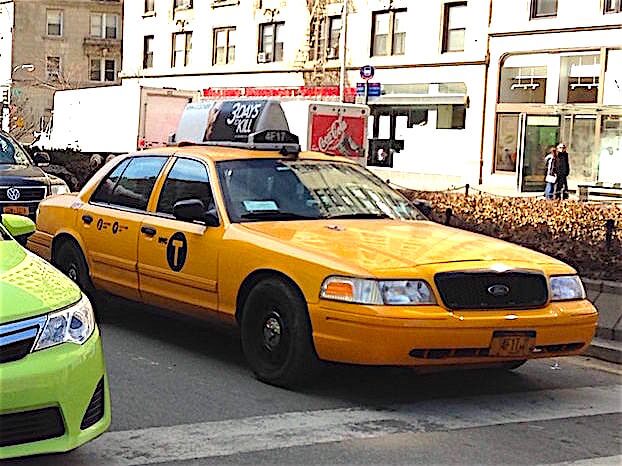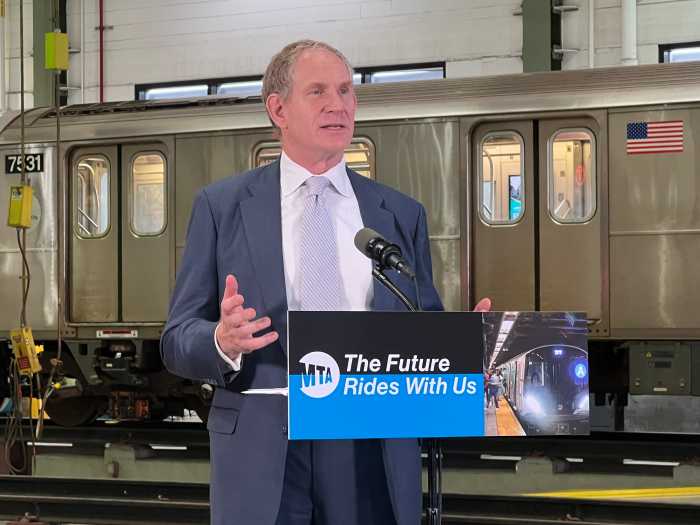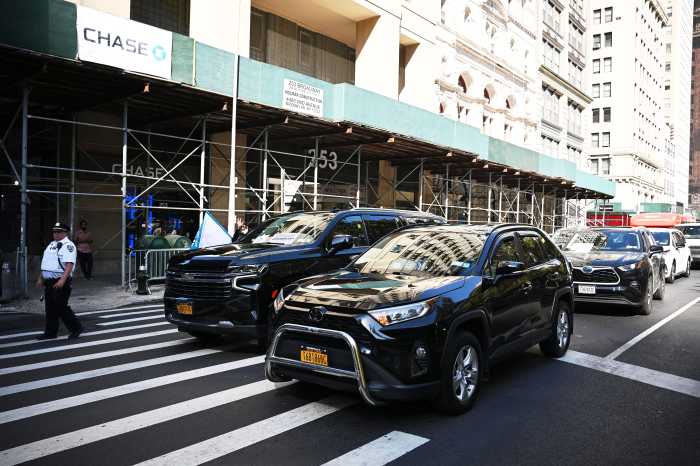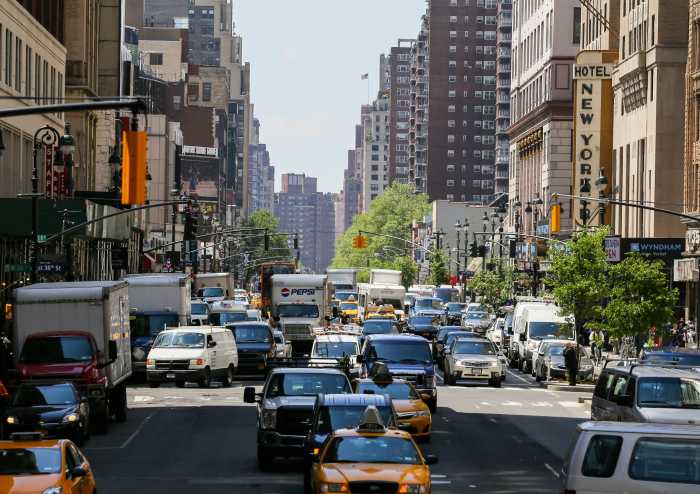BY CAROLYN PROTZ AND SERGIO CABRERA | As The Villager has reported, city officials have developed a carless plan for 14th St. in order to mitigate the impact of intermittent reductions of service on the L-train line. The plan has generated considerable anger among a number of local and advocacy groups who have now filed suit against the city. (https://www.thevillager.com/2019/06/suit-slams-14th-st-bus-plan-urges-court-action/) Somewhat lost in all of the controversy surrounding the lawsuit is the fact that the city has given for-hire-vehicles like Uber and Lyft (F.H.V.’s) — but not New York City taxis — special dispensation to traverse 14th St. in order to pick up passengers. This special

exemption is the essence of arbitrary and capricious, and should surprise no one that taxi medallion owners agree with the lawsuit’s observation that the plan lacks “some modicum of rationality.” From a taxi standpoint, the lawsuit’s indictment of the plan was dramatized the other day at a City Council hearing on the role of New York City and the Taxi and Limousine Commission in the decimation of the value of the taxi medallion. Councilmembers took turns excoriating the T.L.C. for its willful blindness and collusion in the decline of the industry. (https://www.nytimes.com/2019/06/24/nyregion/taxi-medallion-investigation.html) One of the central complaints made by medallion owners was that T.L.C. aided and abetted the decimation of the taxi medallion by exempting F.H.V.’s from many of the same strict regulations that were mandated for taxis. (https://www.crainsnewyork.com/op-ed/real-killers-taxi-medallions) Perhaps the most egregious example was the T.L.C. allowing F.H.V.’s access to the Central Business District — otherwise known as the “Taxi Exclusionary Zone” — for the price of a $250-a-year license when medallion owners had paid hundreds of thousands of dollars for that very same right.

Another exemption involved the requirement for wheelchair accessibility. The city mandated that 50 percent of all taxis must be wheelchair accessible by 2020 — a requirement that places extra financial burdens on cabbies. Yet, for more than four years, Uber and Lyft rejected the demands of advocates, and resisted all legal efforts at compliance. (https://www.nydailynews.com/opinion/stuck-neutral-de-blasio-leaves-wheelchair-users-curb-article-1.2957859) In the end, a watered-down compromise was reached that falls far short of the taxi mandate, one that gives Uber and Lyft another unfair competitive advantage. (https://www.gothamgazette.com/opinion/7362-the-city-s-bogus-compromise-with-uber-would-hurt-riders-with-disabilities) What aggravates us to no end, is that for the past four years, taxis (but not the F.H.V.’s) have contributed hundreds of millions of dollars to the Metropolitan Transportation Authority — 50 cents for each passenger fare. At the same time, as most transit experts agree, the F.H.V.’s have been draining resources and riders off of the buses and trains. Allowing a 14th St. exemption to the culprits who have made mass transit worse is really a case of adding insult to injury, not only to taxis, but to mass transit riders, as well. (https://fortune.com/2017/10/13/uber-lyft-public-transit-ridership/) The bottom line is that if 14th St. is to be car-free, then there should be no exemption for any entity, but especially not for one that has played a major role in making congestion in New York City so much worse. (https://nyc.streetsblog.org/2017/02/27/its-settled-uber-is-making-nyc-gridlock-worse/) However, if any exemption is to be created, it should be given to the taxis — whose numbers have been capped since 1937 — and which have always been seen as a protected public franchise and an iconic symbol of New York City. Protz and Cabrera are taxi medallion owners






























